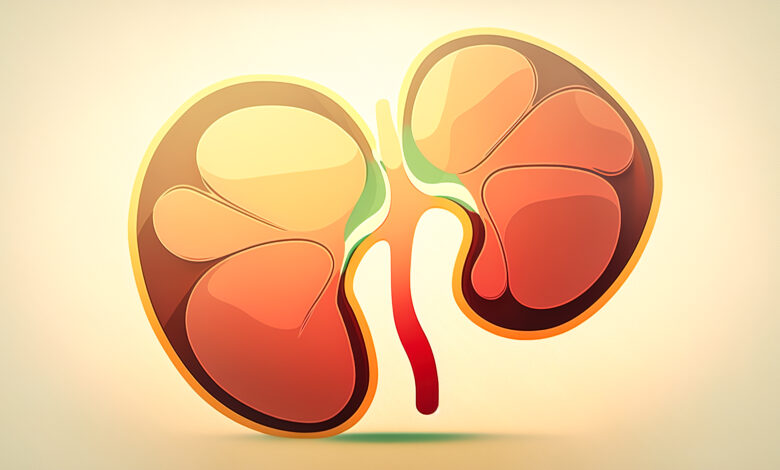Is Your Kidney Disease Getting Worse? Here’s How to Tell

Kidney disease, also known as chronic kidney disease (CKD), is a progressive condition that can silently worsen over time if not properly managed. Early detection and timely intervention are critical in slowing its progression and maintaining your quality of life. Recognizing the signs that your kidney disease might be worsening is key to taking control of your health. In this blog, we will discuss the symptoms, indicators, and preventive measures to help you identify and address worsening kidney function effectively.
Understanding Kidney Disease Progression
Kidneys play a vital role in filtering waste products, balancing electrolytes, and maintaining fluid levels in the body. Chronic kidney disease progresses through five stages, with Stage 1 being mild and Stage 5 indicating kidney failure. As CKD advances, the kidneys lose their ability to perform essential functions, leading to systemic health complications.
Monitoring kidney health involves regular check-ups, including blood tests, urine analysis, and blood pressure monitoring. However, knowing the warning signs of deteriorating kidney function can empower you to seek timely medical intervention.
Signs Your Kidney Disease May Be Getting Worse
1. Changes in Urination Patterns
The kidneys regulate urine production, and changes in urination can indicate worsening kidney function. Be alert to:
- Decreased urine output or trouble urinating.
- Foamy or bubbly urine, a sign of protein leakage.
- Blood in urine (hematuria), which could indicate damage to kidney filters.
- Increased frequency of urination, especially at night (nocturia).
2. Swelling (Edema)
As kidney function declines, excess fluids and sodium accumulate in the body, leading to swelling in the feet, ankles, hands, or face. Persistent or worsening swelling is a common sign of kidney disease progression.
3. Fatigue and Weakness
Kidneys produce a hormone called erythropoietin, which stimulates red blood cell production. When kidney function declines, anemia can develop, causing symptoms like fatigue, weakness, and shortness of breath.
4. High Blood Pressure
Kidneys help regulate blood pressure, but worsening kidney disease can cause hypertension or make it harder to control. Elevated blood pressure further damages the kidneys, creating a harmful cycle.
5. Persistent Nausea and Vomiting
The buildup of toxins in the bloodstream due to reduced kidney function can cause nausea, vomiting, and a loss of appetite. These symptoms are often associated with advanced stages of CKD.
6. Difficulty Concentrating or Mental Fog
A decline in kidney function can result in the accumulation of waste in the blood, affecting brain function. You might experience memory problems, confusion, or trouble focusing.
7. Metallic Taste in the Mouth and Bad Breath
The retention of waste products in the blood, a condition called uremia, can lead to a metallic taste in your mouth or an ammonia-like odor in your breath.
8. Itchy Skin and Cramping
Kidney disease can cause imbalances in minerals such as calcium and phosphorus, leading to itchy skin, muscle cramps, and even bone pain.
What You Should Do If Symptoms Worsen
1. Consult Your Healthcare Provider
Regular check-ups are crucial for monitoring your kidney health. If you notice worsening symptoms, consult your doctor immediately. Blood tests, such as creatinine levels and glomerular filtration rate (GFR), can provide insights into your kidney function.
2. Manage Your Blood Pressure
High blood pressure is both a cause and a consequence of CKD. Work with your healthcare provider to control blood pressure through medication, diet, and exercise.
3. Adjust Your Diet
A kidney-friendly diet can slow disease progression. Focus on:
- Low-sodium foods to reduce fluid retention and blood pressure.
- Controlled protein intake to minimize strain on the kidneys.
- Balanced potassium and phosphorus levels to maintain mineral balance.
4. Stay Hydrated
Proper hydration supports kidney function, but excessive fluid intake can worsen symptoms in advanced CKD. Follow your doctor’s recommendations for fluid consumption.
5. Avoid Nephrotoxic Medications
Certain over-the-counter pain relievers and prescription drugs can damage the kidneys. Always inform your healthcare provider about any medications you’re taking.
Preventing Further Kidney Damage
1. Follow Your Treatment Plan
Adherence to prescribed medications, dietary recommendations, and lifestyle changes is essential in slowing CKD progression.
2. Quit Smoking
Smoking can damage blood vessels and reduce blood flow to the kidneys, accelerating disease progression.
3. Control Diabetes
If you have diabetes, managing blood sugar levels is crucial in protecting your kidneys.
4. Stay Physically Active
Regular exercise can help maintain a healthy weight, lower blood pressure, and improve overall kidney health.
5. Stay Informed
Understanding your condition and treatment options can empower you to make informed decisions about your health.
When to Seek Emergency Care
In severe cases, kidney disease can lead to acute symptoms such as chest pain, severe shortness of breath, or sudden changes in mental state. These symptoms require immediate medical attention.
Conclusion
Kidney disease progression can often go unnoticed until significant damage has occurred. By recognizing the warning signs and working closely with your healthcare provider, you can take proactive steps to slow the disease’s progression and maintain a better quality of life. Early action is the key to managing CKD effectively and preventing complications. Take control of your kidney health today!




